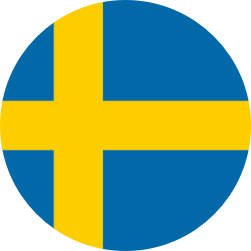To guarantee the quality and integrity of your organisation, conducting a good employment screening is a smart move. Whether you work with partners or employ (new) employees, screening remains an important tool within risk management. After all, by knowing you are working with, you reduce the risk of financial and reputational damage. A mis-hire not only entails enormous unforeseen costs, but it could also potentially harm the reputation of your organisation, with all the (financial) consequences that entails.
To avoid such situations, creating a solid screening policy is crucial. Checking PEP & Sanction lists and Adverse Media should not be missing from this. But what does that exactly mean? We discuss all the ins and outs of these important (international) standards.
A solid screening policy forms the base
With a solid screening policy, you not only comply with current laws and regulations, it also provides insight into why screening is necessary. But also which tools can help with the screening process so it can be carried out quickly and successfully.
Are there integrity-sensitive positions with many (financial) responsibilities? Then you want to hire and retain the right people for that. A (periodic) employment screening helps you to check various relevant components.
Comply to certain laws and regulations with employment screening
The financial sector is familiar with the Money Laundering and Terrorist Financing Prevention Act (WWFT), which obliges financial institutions to screen potential partners. PEP & Sanctions Lists and Adverse Media are often checked for criminal offences such as money laundering, committing (financial) fraud, financing and/or participation in terrorist organisations and regimes, and drug-related crime.

Checking PEP Lists
PEP (Politically Exposed Person) lists are compiled internationally, consulting sources such as governments, but also the CIA World Leaders List or the CIA World Factbook. PEP Lists are divided into 5 levels, with political heavyweights at the first level and lightweights at the fifth level. This allows you to quickly assess the risk posed by a (potential) partner or employee:
- Heads of State, Heads of Government, Ministers, Secretaries of State and Members of Parliament.
- Members of supreme courts, constitutional courts and other judicial bodies, members of audit offices and central bank boards.
- Ambassadors, chargés d’affaires, senior army officers and members of administrative, managerial or supervisory bodies of public enterprises; (NB: Middle management officials and lower-level civil servants are not covered by the concept of PEP).
- Immediate family members of PEPs. These are the spouse, a partner who is considered to be equivalent to a spouse under national law, children and their spouses or partners and parents of the PEP.
- The closest associates of a PEP. These are the persons who, with or for the benefit of PEPs, are the beneficial owners of a legal entity. These are PEPs who live in the Netherlands with a non-Dutch nationality and PEPs who live in another (Member) State, regardless of their nationality.
Checking Sanction Lists
Sanction lists stem from the Sanctions Act of 1977, which requires organisations to be able to guarantee their integrity in order to prevent (financial) offences. Sanctions lists contain the names of persons and organisations that are currently and/or in the past subject to sanctions. For example, someone is placed on a sanctions lists if:
- Participation is a (former) terrorist regime (such as North Korea).
- Participation in a terrorist organisation (such as IS).
- Financial fraud and money laundering.
As with PEP lists, Sanction lists are drawn up internationally, with information from global sources being continuously updated. Some examples of sources are:
- US: Office of Foreign Assets Control – OFAC SDN.
- UN: Security Council – Committee 1132 Sierra Leone, 1267 Al Qaeda, 1483 Iraq, 1518 Iraq, 1521 Liberia, 1533 Congo, 1572 Côte d’Ivoire, 1591 Sudan, 1737 Iran.
- EU: Common Foreign and Security Policy – CFSP.
- AFM: AFM – warning list
Checking Adverse Media
An Adverse Media check examines the extent to which (potential) partners or employees appear on a list of convicts of certain categories of offences. Here, too, the focus is on money laundering, committing (financial) fraud, bribery and corruption, participation and/or financing of terrorism and drug-related crime. The list consists of both convicted individuals and organisations and is maintained and updated daily by a team of researchers who scan lists from around the world for new publications. Frequently consulted sources are lists of:
- Financial and other regulatory authorities and disciplinary bodies
- Law enforcement authorities and anti-corruption agencies such as Interpol, Europol, FBI, etc.
- Additional lists of individuals disqualified as directors of an organisation
Being able to guarantee quality and integrity at all times
Prevention is always better than curing. It is therefore advisable to check PEP & Sanction lists and Adverse Media when filling an integrity-sensitive position. Be aware that each screening is a snapshot that is often linked to situations and events from the past. That is why it is wise to continue to check not only potential partners and employees, but also existing partners and employees by means of periodic in-employment screening. This way you stay informed of current state of affairs and the quality and integrity of your organisation can be continuously guaranteed.
Neem contact op
"*" indicates required fields
Neem contact op
"*" indicates required fields
Neem contact op
"*" indicates required fields
Neem contact op
Neem contact op
Download de whitepaper
Download de whitepaper
Download de whitepaper
Download de whitepaper
Download de whitepaper
Download de whitepaper
Download de whitepaper
Download de whitepaper
Meld je hier aan
Neem contact op
"*" indicates required fields
"*" indicates required fields
"*" indicates required fields
<!– Calendly link widget begin –>
<link href=”https://assets.calendly.com/assets/external/widget.css” rel=”stylesheet”>
<script src=”https://assets.calendly.com/assets/external/widget.js” type=”text/javascript” async></script>
<a href=”” onclick=”Calendly.initPopupWidget({url: ‘https://calendly.com/basteeuwen/small-demo-validata’});return false;”>Schedule time with me</a>
<!– Calendly link widget end –>
"*" indicates required fields
 Switch region
Switch region 



